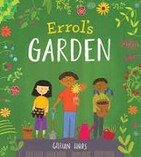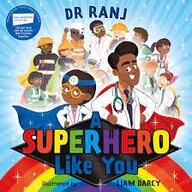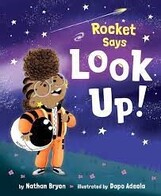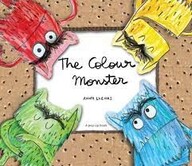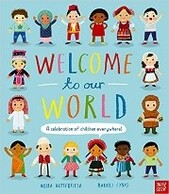INTENT
At the Tynings Primary School, we are committed to ensuring that we give our pupils the best start in their education by offering an ambitious curriculum. We place great value on the development of children as individuals and are committed to providing them with the skills, knowledge and understanding they need to succeed.
The curriculum that we offer ensures that children
- Participate in opportunities to engage with the arts, to explore and play with a wide range of media and materials
- Have a good understanding of their place in the world and how to make the world a better place
- Are given plentiful opportunities to enrich and widen children’s vocabulary through enabling environments for high quality play and to stimulate their curious minds.
- Are equipped to academically thrive in KS1 and beyond
Being Academically Successful
In EYFS we recognise children’s prior learning, both from previous settings and their experiences at home. We work in partnership with parents, carers and other settings to provide the best possible start, ensuring each individual reaches their full potential from their various starting points.
Our ambitious curriculum has been designed to enable children to build their learning over time. As such, there is a strong emphasis on the Prime Areas of learning; Personal, Social and Emotional Development and Communication and Language, including Oracy. We recognise that oracy not only improves academic outcomes, but is a life skill to ensure success beyond school, in life and future employment. Oracy develops children’s thinking and understanding, which in turn promotes self-confidence, resilience and empathy which support the child’s well-being.
Our enabling environments and highly skilful adult interactions support the children as they begin to link learning to their play and exploration right from the start. We believe that high level engagement ensures high level attainment. We follow children’s interests and ideas to foster a lifelong love of learning both in and outside of school.
High Quality Arts Education
Right from the start at the Tynings Primary School, we introduce fantastic artists, books, poems and pieces of music to stimulate curiosity and develop children’s artistic and cultural awareness. Singing is a vital part of our daily routine; where children develop their self-expression and vocabulary. We love to do this in a fun practical way. We provide opportunities for children to grow as performers and support their imagination through ‘Helicopter Stories’ and whole-class performances.
Our Place in the World
As well as guiding children to make sense of their physical world and their community, we ensure who we are as individuals is celebrated. We support the development of positive attitudes about the differences between cultural and religious experiences. Through outdoor learning and play, children are able to respectfully decide what is right and what is wrong. They are resilient to the influence to others. Forest School enhances this learning and takes place in our school grounds. Our curriculum provides the platform for our children to embrace History, Geography and Science further up the school.
Keeping fit and Healthy: Body and Mind
As well as knowing how to independently look after their bodies, we teach children to look after their brains, and ensure they are ready to learn. Through positive relationships and adults modelling, we promote kindness and resilience. This supports our children to develop a positive sense of self and have confidence in their own abilities. High-quality stories, songs and poems are used to encourage our children to lead happy and healthy lives.
Implementation:
Each half term, EYFS staff introduce one of our whole school themes to provide inspiration for learning, whilst providing the flexibility for children to follow their own interests and ideas. Children learn through a balance of child-initiated and adult-directed activities. The timetable is carefully structured so that children have directed teaching during the day. The timetable changes throughout the year to take into consideration the changing needs of the children. These sessions are followed by small focused group work. This means the teacher can systematically check for understanding, identify and respond to misconceptions quickly and provide real-time verbal feedback which results in a strong impact on the acquisition of new learning. Children are provided with plenty of time to engage in ‘exploration’ throughout the variety of experiences carefully planned to engage and challenge them in the provision. The curriculum is planned for the inside and outside classrooms and equal importance is given to learning in both areas.
Phonics
We follow a complete systematic synthetic phonics programme called, ‘Little Wandle Letters and Sounds Revised’. We use this to ensure consistency across the school. In Reception, we begin with Phase 1 which concentrates on developing children's speaking and listening skills and lays the foundations for the phonic work which starts in Phase 2. The emphasis during Phase 1 is to get children attuned to the sounds around them and ready to begin developing oral blending and segmenting skills, prior to GPC. Children are then introduced to Phase 2 and 3 where they will develop GPC, segmenting, and blending skills to decode words. During the summer term, children may move on to Phase 4 if they are ready. Children are encouraged to read at home and are listened to regularly in school. They are given books that match their phonic knowledge in order for them to apply their learning with the aim of becoming successful, confident and fluent readers. Children also learn how to write letters within their phonics work.
Mathematics
In Reception, we follow the White Rose Maths Educational Programme. We deliver a curriculum that embeds mathematical thinking and talk. We do this by providing a variety of opportunities to develop the understanding of number, shape, measure and spatial thinking. It is important that children develop a really strong sense of numbers to 10. This is why we provide repeated experiences in different contexts.
Children learn through games and tasks using concrete manipulatives and pictorial structures and representations which are then rehearsed, applied and recorded within their own child-led exploration. There is a focus on the following counting principles; one to one correspondence, stable order principle, the cardinal principle, the abstraction principle and the order-irrelevance principle. Children’s fine manipulative skills are a focus to develop 1-1 correspondence so children count each object only once.
In EYFS, we also follow the NCETM Mastering Number Programme. We provide a daily teaching session for all children of 10 to 15 minutes, in addition to their normal maths lesson. This project aims to secure firm foundations in the development of good number sense for all children from Reception through to Year 1 and Year 2. The aim over time is that children will leave KS1 with fluency in calculation and a confidence and flexibility with number. Attention will be given to key knowledge and understanding needed in Reception classes, and progression through KS1 to support success in the future.
Wider Curriculum
The curriculum is organised into six whole school themes which reflect the needs of our school community. As much relevant learning as possible takes place within these themes, including English, Art, Music, DT, and RE. Some subjects may be taught discretely, for example PE, Maths and French. Our wider curriculum is taught through the learning areas; ‘Understanding of the World’ and ‘Expressive Arts and Design.
|
Acceptance & Kindness
|
Different Cultures
|
The World Today
|
Saving Our Planet
|
Building Relationships
|
Adventure & Exploration
|
|
Growing Together
|
Our Diverse World
|
Our Heroes
|
I am the Earth
|
We Are Builders
|
Tynings Explorers
|
|
Key texts:
|
|
|
|
|
|
|
|
|
Focus on: PSHE, Science and RE
|
Focus on: History, RE, PSHE, Geography
|
Focus on: Science, Geography and PSHE
|
Focus on: Science, History and Geography
|
Focus on: PSHE, History
|
Focus on: History, Geography
|
|
Learning all about ourselves, each other and our environment.
|
Discovering about different cultures and celebrations around the world.
|
Learning about people who help us, and their impact on the world today.
|
Discovering the wonders of the planets and stars. Exploring dinosaurs and the past.
|
How relationships are built today and in the past. Investigating how buildings have changed locally in time.
|
Discovering how children all over the world lead different lives.
|
Impact:
Assessment
Prior to children starting, staff spend time speaking to the child’s parents, previous settings and read previous learning journals to gain an understanding of the whole child and where their starting point in Reception. During the first half term in Reception, all staff use ongoing assessments, observations and conversations with the child to develop a baseline assessment. This identifies each individual’s starting points in all areas so we can plan experiences to ensure progress. The following baseline assessments are also carried out.
The RBA (Statutory Reception Baseline Assessment)
This assessment focuses on ‘Language, Communication and Literacy,’ and ‘Mathematics.’ The purpose of this is to show the progress children make from Reception until the end of KS2.
Speaking and Communication
We use a complete speech and language toolkit called ‘Welkomm’ to identify any speech and language difficulties or delay. Due to Covid-19, children’s communication and interaction development has been impacted greatly. We use different games and tasks to enhance their communication skills and support their speech sounds.
Phonics
Each child is assessed individually before a new phase is taught in Reception. Phonic assessments are carried out using the Little Wandle scheme every half term to quickly identify pupils that are not making expected progress. Our aim is for children to ‘keep up’ rather than ‘catch up’ where possible. Assessments are completed three times per year and shared with parents. The class Teacher updates the progress children have made.
Ongoing Observation:
All ongoing observations are used to inform weekly planning and to identify children’s next steps. This formative assessment does not involve prolonged periods of time away from the children and excessive paper work. The team draw on their knowledge of the child and their own expert professional judgements through discussions with other practitioners, photographs and physical examples such as a child’s drawing / making. Some observations are uploaded using Tapestry and shared with the supporting parents and carers and examples kept in individual files.
In Summer Term 2, the EYFSP is completed where teacher judge whether the child has met each of the 17 ELGs. They will be assessed as either ‘emerging’ or ‘expected.’ Whilst there is no judgement to state if a child is exceeding beyond an ELG, teachers, have a duty to provide a narrative for both parents and the Year 1 teacher. Impact is also evident through our successful transitions into Year 1. EYFS staff have a good understanding of how ELGs link to the National Curriculum, and through our robust planning and delivery across the spectrum of subjects – both core and foundation - children leave the EYFS stage with the skills, knowledge and confidence to continue their journey being academically successful, creative, keeping fit and healthy: body and mind and finding their place in our big exciting world.






